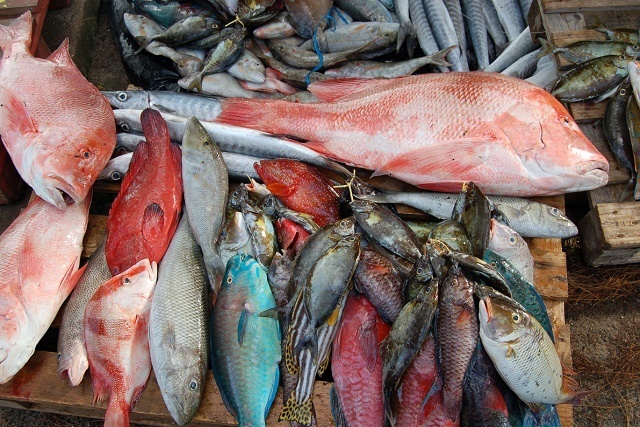A new campaign is to be launched in Seychelles to better inform the public on the world’s first sovereign blue bond, a financial instrument designed to support sustainable marine and fisheries projects.
The campaign will begin in April by the Blue Economy Department in the Vice President’s Office. “It will involve different strategies which involve going around in the district to talk to fisherman and people having an interest in sustainable fishing,” said the department.
The department added that: “It will also give information on areas where people can launch themselves into in the blue economy sector.”
The sovereign blue bond was launched at the ‘Our Ocean’ conference in Bali, Indonesia, in October last year.
Seychelles is balancing the need to both develop economically and protect its natural endowment. (Gerard Larose, Seychelles Tourism Board) Photo License: CC-BY
Valued at $15 million over 10 years with guarantees from the World Bank and the Global Environment Facility, the bond is to support the Seychelles’ transition to sustainable fisheries.
As one of the world’s biodiversity hotspots, Seychelles, with an Exclusive Economic Zone of 1.4 million square kilometres, is balancing the need to both develop economically and protect its natural endowment.
Speaking at the conference in Bali, the Vice President of the island nation, Vincent Meriton, said that Seychelles is honoured to be the first nation to pioneer such a novel financing instrument.
“The blue bond, which is part of an initiative that combines public and private investment to mobilise resources for empowering local communities and businesses, will greatly assist Seychelles in achieving a transition to sustainable fisheries and safeguarding our oceans while we sustainably develop our blue economy,” added Meriton.
Bonds are financial instruments to raise public and private capital for specific activities which can generate a return on investment. Blue bonds often fund the development of sustainable fisheries.
The blue bond, is part of an initiative that combines public and private investment to mobilise resources for empowering of local communities and businesses (Gerard Larose, Seychelles Tourism Board) Photo License: CC-BY
Proceeds from the bond will be used to support the expansion of marine protected areas, improved governance of priority fisheries and the development of the Seychelles’ blue economy.
Grants and loans will also be provided through the Blue Grants Fund and Blue Investment Fund, managed by the Seychelles’ Conservation and Climate Adaptation Trust (SeyCCAT) and the Development Bank of Seychelles.
Seychelles, an archipelago in the western Indian Ocean, was assisted in developing the Blue Bond by the World Bank by reaching out to the three investors — Calvert Impact Capital, Nuveen and Prudential.
The Seychelles blue bond is partially guaranteed by a $5 million guarantee from the World Bank and further supported by a $5 million concessional loan from the Global Environment Fund which will partially cover interest payments for the bond.
According to the Vice President of Sustainable Development at the World Bank, Laura Tuck, “the World Bank is excited to be involved in the launch of this sovereign blue bond and believes it can serve as a model for other small island developing states and coastal countries. It is a powerful signal that investors are increasingly interested in supporting the sustainable management and development of our oceans for generations to come.”
On his side, Naoko Ishii, the chief executive and chairperson of the Global Environment Facility said, “the Seychelles blue bond is a significant milestone in our long-standing support for ocean conservation, and the GEF is proud to invest in developing national blue economies that protect the rich marine ecosystem while supporting economic growth, improved livelihoods and jobs.”
Proceeds from the bond will also contribute to the World Bank’s South West Indian Ocean Fisheries Governance and Shared Growth Programme, which supports countries in the region to sustainably manage their fisheries resources and increase economic benefits from their fisheries sectors.

